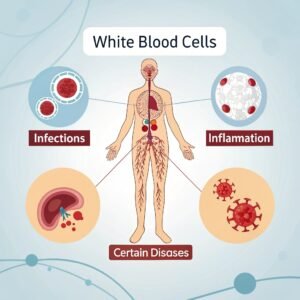Debunking Common Misconceptions About Menopause and Weight Gain
Many women notice weight gain during menopause, leading to frustration and confusion. But is it truly inevitable? While hormonal changes do play a role, lifestyle factors have a greater impact. You can take control of your health by understanding the truth behind this phase. In this blog, we’ll explore Menopause & Weight Gain: Myths vs. Facts to separate fiction from reality.
Menopause & Weight Gain: Myths vs. Facts – Is Weight Gain Unavoidable?
A common myth is that weight gain is a guaranteed part of menopause. The truth? While hormonal shifts can slow metabolism and redistribute fat—especially around the abdomen—gaining weight is not inevitable. Lifestyle choices, such as staying active, eating nutritious foods, and managing stress, play a bigger role in maintaining a healthy weight. Making small, sustainable changes can prevent unwanted weight gain.
Menopause & Weight Gain: Myths vs. Facts – Does Metabolism Shut Down?
Many believe that metabolism drastically slows down or stops during menopause. While metabolism does decrease slightly due to a loss of muscle mass, it doesn’t shut down completely. Regular strength training, consuming protein-rich meals, and staying physically active can keep your metabolism working efficiently. The key is consistency in healthy habits.
Other Common Myths About Menopause & Weight Gain
“Only diet matters.” While diet is important, exercise—especially strength training—is equally crucial for maintaining muscle mass and boosting metabolism.
“Hormone therapy causes weight gain.” There is no direct link between hormone therapy and weight gain. Any weight changes are usually related to lifestyle, not the treatment itself.
“Belly fat is inevitable.” While hormonal changes may shift where fat is stored, targeted exercises and a balanced diet can help reduce abdominal fat.
Final Thoughts
Understanding Menopause and weight Gain can help you make informed choices. Instead of fearing weight gain, focus on lifestyle changes that support your body. Prioritizing exercise, proper nutrition, and stress management can make menopause a healthier and more manageable transition. Knowledge is power—taking action leads to lasting results.
NOTE: – IT IS ALWAYS RECOMMENDED TO CONSULT YOUR HEALTH CARE PROFESSIONAL. ALL DATA SHARED HERE ARE FOR EDUCATIONAL PURPOSES ONLY.









